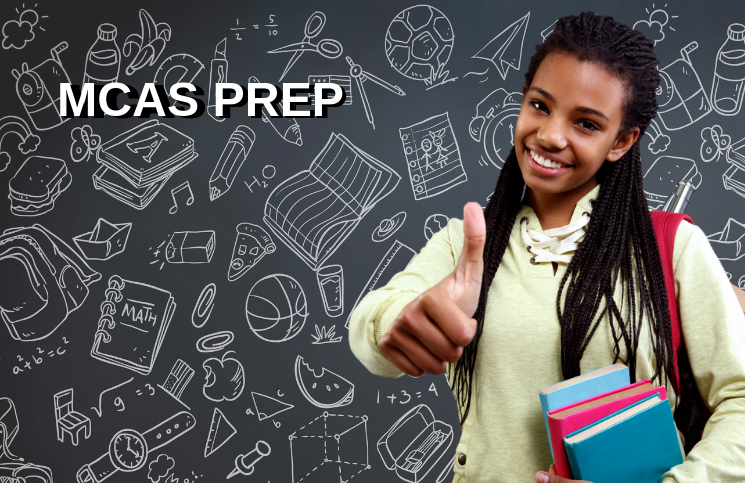Meet the new MCAS with confidence and success
by Eileen Wedegartner, Blended Learning Specialist
I started teaching in 1998. My first year I filled in for a teacher in a Boston exurb. The school was my alma mater, so English department staff took me under their wings to help me do the best one could hope for a first-year teacher. They gave me lesson plans, coached me on practice and helped me develop some good curriculum. By all measures, I had a great year in my first year of teaching.
At the end of the year I moved on to a full-time position at a private Catholic girls’ school for students from affluent homes in suburban Boston. I taught AP literature and college-bound (honors) students. The year was great. I was able to hone my skills in curriculum development without having to worry much about classroom management. Those girls were doers and I had another successful year as a young teacher with a lot of rewards. My AP students had the highest-ever rate of scoring 3 or above on the AP exam. While I would like to take credit for that, I knew those girls would have done amazing things if it was a can of peaches at the teacher’s desk. They challenged me to raise my game and I enjoyed being creative and allowing them to be creative. But I felt I was not being challenged as a professional.
I decided to apply to districts where I would have to inspire students just to show up to school, let alone read and write and participate in class. I landed a job in a small urban district that was a microcosm of the United States, a small city with broad diversity of culture, economics and languages. I wanted a challenge. I got it.
It was 2000-2001, the first year that MCAS counted toward graduation for 10th graders who would graduate in 2003. I began my work with two freshman classes, two college prep (the euphemistically-named lowest level) and one honors class. I also had two college-prep sophomore classes. I wanted these classes to pass MCAS on their first try.

Some of the sophomores were simply petrified, some were resigned to failing, and a few were ready for the challenge. My job was to get them all ready. I wanted that for them—and for myself.
I still remember the pressure I felt as a young teacher. Not only did we have to teach the school curriculum, we also needed to work on test prep. That included taking multiple-choice exams and constructing the standard rudimentary five-paragraph essay. It did not help that I had the mayor’s son in my class.
Fortunately, I had had two years to develop an array of teaching tools. I was young and still had plenty to learn, but I had a bag of tricks for grouping and teaching ideas. I knew enough to have openers. I knew to have clock buddies. And I knew it was vital to lay down the rules at the beginning of the year on what would be expected. There were plenty of challenges along the way that year but I had a great department head who was willing to come in and observe, share her vast knowledge, and encourage me and other young teachers to continually develop with one another.
I could not tell you now what the exact results were on that MCAS, but I can say that many of my students, including the Mayor’s son, did better than expected. I can remember going through the item analysis and identifying where our students were successful and where they needed to develop more based on the state curriculum frameworks. That was our roadmap for the next year.
It was a lot of painstaking work but at the end of the day I was a better teacher for it. I was more thoughtful and focused in my development of curriculum. I worked hard to ensure that my students were exposed to the right content and given opportunities to demonstrate proficiency in it.
This year I’m watching high school teachers get ready for the Next-Generation MCAS 2.0. As I join them in working through the practice items that have been released, I get a similar feeling to what I experienced eighteen years ago. There’s a new challenge in the air.
The new exam pushes students to be more knowledgeable about the curriculum standards on which they are being assessed. It has more multi-answer, multiple choice questions. It pushes teachers to coach a new, more thoughtful approach to answering questions. It challenges both students and teachers. Based on my two decades of experience, I am confident they will rise to the occasion and meet the new demands. I know I am ready for the challenge of honing our JFYNet blended supports and practices to help teachers prepare students to meet the new MCAS with confidence and success.
I’ve been here before.
Related post: MCAS 2.0 Previews: An Opportunity for Growth





